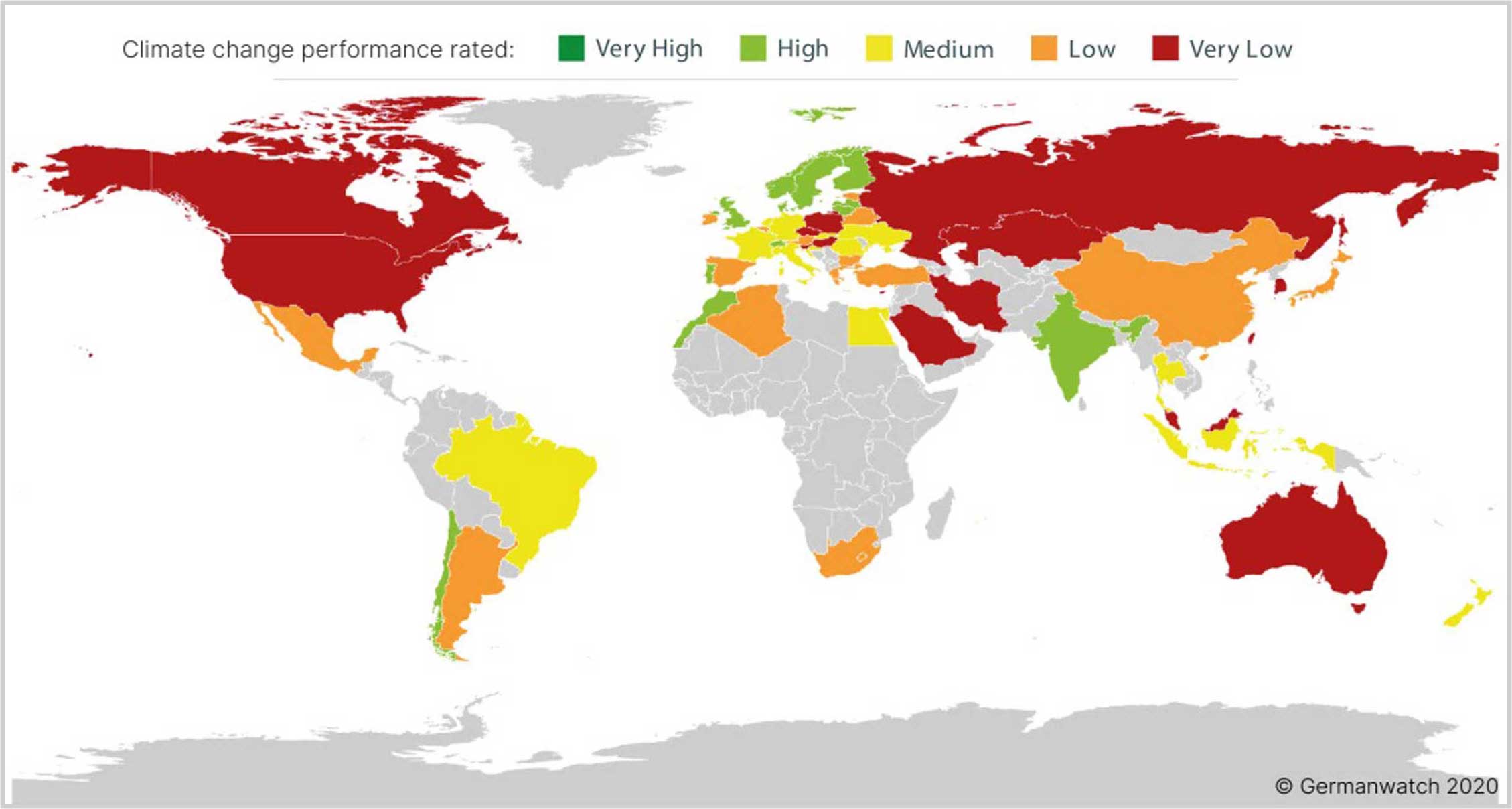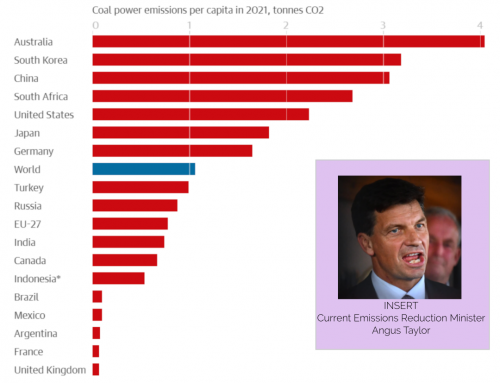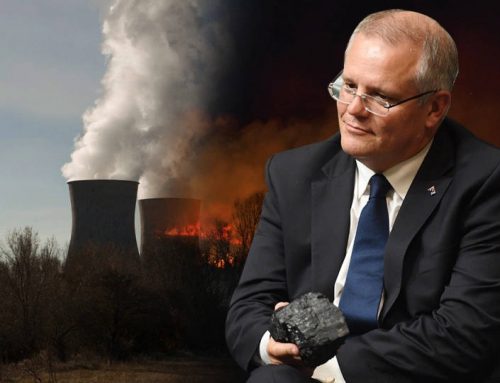The Climate Change Performance Index (CCPI) has been published annually since 2005. Although the position of many of the countries included in the index has improved slightly recently, there are stiil no countries in the top three positions overall.
Australia has ranked near the bottom, or in one case right at the bottom, of every one of five tests undertaken. Australia ranks with Bulgaria, Kazakhstan, Iran, Algeria and Mexico, and is the only developed country to be ranked so low in all performance tests.
- CLIMATE CHANGE PERFORMANCE – Australia 58th of 63 – category VERY LOW
- GREENHOUSE GAS EMISSIONS – Australia 56th of 64 – category VERY LOW
- RENEWABLE ENERGY – Australia 52nd of 63 – category VERY LOW (Australia’s best result!)
- ENERGY USE – Australia 54th of 64 – category VERY LOW
- CLIMATE POLICY – Australia 60th of 64 – category VERY LOW ( and you can’t do worse than last!)
The summary of Australia’s performance in this year’s CCPI is copied below in italics. A link to the full report (as a downloadable PDF) is here – CCPI REPORT.
This is an absolute disgrace for a country with Australia’s climate and wealth advantages. The result reflects directly on the country’s political leadership of the conservative coalition who are more than happy to subsidise fossil fuel production. There is no national plan for transitioning to renewable energy.
Australia slips four places to 58th in this year’s CCPI, trailing many developed economies.
The country receives ratings of very low for its performance in every CCPI category: GHG Emissions, Renewable Energy, Energy Use, and Climate Policy.
Australia’s federal climate policies are based on itsTechnology Investment Roadmap (TIR), aimed at supportingtechnologies intended to help reduce emissions by 2040, yet with continuation of fossil fuel-based energyconsumption. In October 2021, the government confirmed its long-term emissions reduction plan aiming for net zeroby 2050. No new policies and plans were announced to go along with this announcement. The CCPI national experts regard the TIR as insufficient for decarbonising the economy,
reducing the use of fossil fuels, promoting renewable energy, and setting out how national GHG emissions will be reduced (with a rating of very low for Climate Policy). The government does not have any policies on phasing out coal or gas, but CCUS and hydrogen are being promoted as low emissions technologies. Even though the renewable electricity is growing, the experts believe that Australia has
failed to take advantage of its potential, and other countries have outpaced it. This failure to promote renewable (leading to a low rating for the Share of Renewable Energy in Energy Use indicator), is exacerbated by inadequate infrastructure investment, despite subsidies for fossil fuel production and promotion of a ‘gas-led’ economic recovery following COVID-19. Despite public support for a net zero
target, there is currently no national plan for transitioning to renewable energy (a backdrop for the very low rating for the National Climate Policy indicator), with the policy uncertainty undermining investment and causing energy supply concerns.
The country’s lack of domestic ambition and action has made its way to the international stage. The experts describe that the country’s international standing has been damaged by climate denialism by politicians, refusal to increase ambition, and refusal to recommit to international green finance mechanisms (accompanying a very low rating for the International Climate Policy indicator). Australia
has fallen behind its allies and its inaction even attracted public criticism in the run-up to COP26.
#rockflatblog





